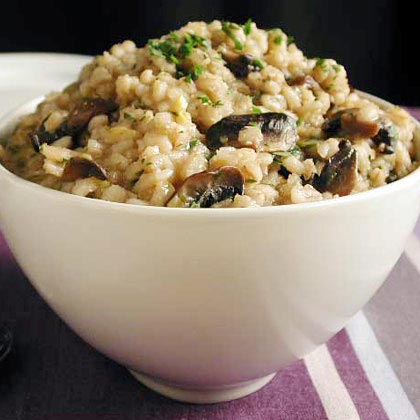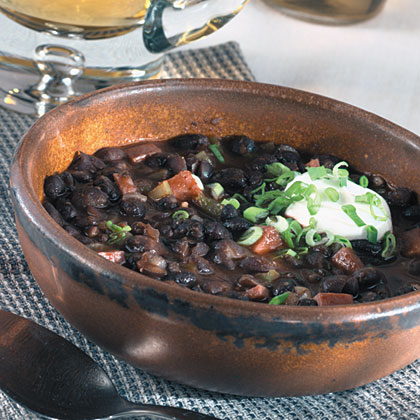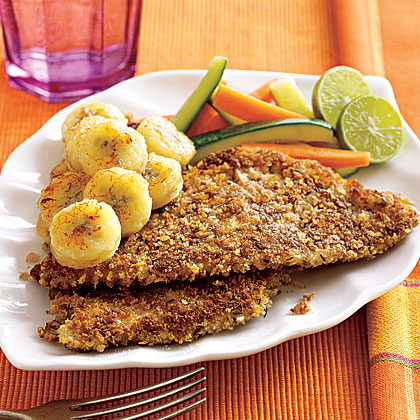Kasha Is Russian Soul Food
Bookmark this page

Ingredients
2 cups salted water
1 cup buckwheat groats
To make
Buckwheat groats, also known as porridge, are generally considered a modest dish, a comfortable dish, and a peasant meal. For me, this is a direct link to my parents ' Soviet roots. When I was very young, my mother, a recent immigrant, used to serve me and my sister porridge for breakfast. The smell was unmistakable, deep-fried, filling the house with an aroma as strong as brown rice, leaking coffee, or popcorn cooked on the stove. She roasted the grains in a hot, dry pan, then boiled them in water until fluffy, then poured them into shallow bowls, poured milk over them, and served them. It was similar to cereal, but much tastier — the porridge warmed the milk and gave it a nutty-earthy taste. It was our soul food, although I didn't know the term at the time.Over the course of my life, the dish eventually turned out to be Proustian. It didn't stay on my children's breakfast menu for long and belonged to a very specific period that I might call "pre-assimilation", which lasted until I was about six years old, which coincided with the time I started bringing lunch to school. While I don't recall ever wanting to give up buckwheat porridge with milk, I suspect that what came between my DC (during-porridge) and PK (after-porridge) was a longing to eat like other people did. You might think that this is mostly due to the fact that you are a child of immigrants. While this certainly played a role, the food shaming my peers were subjected to had more to do with my health-crazed mom putting raw green peppers for my lunch (which, frankly, I loved) than with eating "foreign" food. In the era of fruit rolls and Planters Cheez Balls, healthy food was quite foreign. My desire to fit in was coupled with an insatiable appetite for junk food, the side effect of which was the lack of it. I'm sure the transition to PC was marked by whining at the grocery store, begging for cereal that I really wanted (something with sugar, especially crunchy wheat flakes with raisins, whose very convincing ads featured bits of honey mixed with regular cereal, and characters from The Wizard of Oz). After that, I reluctantly agreed to the ones my mom would actually buy (something sugar-free). Buckwheat groats have been replaced on the breakfast table with pre-prepared products such as puff rice, millet, corn and Weetabix. I still loved porridge with milk, but I didn't miss it. What I didn't learn until later was that porridge is divisive. If you don't have an Eastern European background, you probably won't understand its appeal. (You can still opt out even if you want to.) The "seed" is actually a fruit stone akin to rhubarb and sorrel, and elicits hot or cold responses, as well as grudging praise. In a tender essay on laknishkes porridge, an Ashkenazi Jewish dish made from buckwheat groats made with lots of onions and dressed with butterfly paste, author Philippe Lopate writes: "The porridge itself, let's face it, tastes like nothing else, or has a little dirt added to it." And this is a tribute.Dumplings with porridge occupy a worthy place in the pantheon of Catskill canteens and dairy delicacies, even if porridge with milk for breakfast has never been popular in the New World. But porridge occupies a large place in Soviet psychology, and there are many Russian phrases that confirm this. "You can't make porridge with him" means a meeting with an invincible enemy, since in Russia porridge (in Russian - porridge) can be prepared from almost anything. "You'll never ruin your porridge with butter" means that the more you add, the better it tastes. "Cabbage soup and porridge-this is our real dish" speaks for itself.In fact, buckwheat porridge is called "buckwheat" or "buckwheat porridge" in Russian, which, according to culinary historian Gil Marks, refers to the Greek monks who grew buckwheat, or the Greek merchants who sold it. It wasn't until Jewish settlers arrived en masse in the United States in the late nineteenth century that buckwheat entered the American culinary lexicon. In Yiddish, buckwheat is simply called "porridge", which is how we came to the abbreviated designation used today.Although I haven't eaten porridge for breakfast since childhood, oddly enough, buckwheat seems to be enjoying the moment, thanks in large part to its inherent gluten-free lightness, the growing interest in alternative grains and the fact that it lends itself well to all the popular bowl treatments. When I asked my mother why we stopped eating porridge for breakfast at all, she told me that she still does. It only seemed right then to ask her for the recipe.Mom's breakfast kashamani American Jews roll buckwheat groats in egg before cooking, which supposedly prevents the grains from sticking together and turning them into mush (you can probably thank the recipe on the packaging of Wolff's Kasha for the prevalence of this method). But my mother, Anna Gershenzon, cooks in the old-fashioned way: first the cereals are fried in a dry pan, and then diluted in water to give them maximum splendor.
Boil 2 cups of salted water.Pour 1 cup of buckwheat groats into a sieve and shake to get rid of the chaff. Check the grits for impurities by removing those that are discolored.Place the grits in a large, straight-sided skillet and toast them over medium-high heat, shaking the pan occasionally to warm them up, taking care not to burn them.Pour boiling water into the pan, reduce the heat to low, cover with a kitchen towel and a lid to keep the steam out.
Boil 2 cups of salted water.Pour 1 cup of buckwheat groats into a sieve and shake to get rid of the chaff. Check the grits for impurities by removing those that are discolored.Place the grits in a large, straight-sided skillet and toast them over medium-high heat, shaking the pan occasionally to warm them up, taking care not to burn them.Pour boiling water into the pan, reduce the heat to low, cover with a kitchen towel and a lid to keep the steam out.
Views: 149
Author:Admin
Published: 11/20/2023 8:32 PM
Was this recipe helpful to you?
Yes
No






Comments (0)